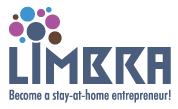Objectives:
This project approaches the problem of brain drain with complexity thinking and offers multilevel solutions: with SME development training, and with other events, we improve undergraduate and postgraduate engineering students’ entrepreneurship knowledge with regards to the special needs of generations Y and Z and to the changing demand for skills.
The solution (technology):
The key words of this project are brain gain, SMEs, training, mentoring, competences, generation Y and Z, raw materials.

Our motto: “Be a stay-at-home entrepreneur”!
People with higher qualifications make up ca. 20-25 percent of the outward migrant population in the ESEE region, and this figure is even higher in the industrial sector, with special regard to the raw materials subsector. Here we note that under the term ‘raw materials sector’ we mean not only the group of companies that take part in the discovery, development and processing of raw materials, but the academic sector, research centres and other non-profit organizations linking directly or indirectly (i.e. offering services, educating the workforce of the future) to these companies as well. It covers the entire value chain of raw materials, so exploration, extraction, processing, refining, re-use, recycling and substitution. The overall objective of LIMBRA is to limit brain drain in the raw materials sector and to enhance the entrepreneurial activity in the Visegrád Four countries. It targets the currently untapped entrepreneurial potential of those young undergraduates and postgraduates (in Bachelor’s and Master’s courses which are related directly or indirectly to the raw material sector) and career starters, some of whom would probably consider going to work abroad.
As MOVE concluded, the periphery-sending countries are located in the ESEE region and with regards to the V4, it can be stated that Poland, Slovakia and Hungary are mobility promoter countries, the Czech Republic is a mobility faller. In this region the theory of subjective well-being (clearly presented in MOVE) can partly provide a solution to the problems described above. Recent studies on mobility emphasize not only the high levels of emigration among highly skilled people, but the fact that this group is overrepresented in return migration as well. The research studies on student mobility and skilled migration show evidence that international students are likely to stay in their origin country after finishing their studies (because national identity is revaluated). Using this conclusion we combine three programmes to reduce the negative outcomes of the brain drain. Firstly, entrepreneurial skills need to be improved via short training courses for undergraduate and postgraduate engineering students (and to career starters). The goal of the programme is to train professionals and develop their knowledge on the main fields of business life, and to take a strategic approach to ensure the development and sustainability of their enterprises. The programme also would like to enhance progress in the participants’ careers and motivate them to start their own business, just as it promotes the advantages of being an entrepreneur through mentoring and support.
Secondly, the culture of family business (our motto is “Be a stay-at-home entrepreneur!”), has to be promoted via wider society learning and promotion programmes. Thirdly, we give international experiences to the participants as well recognizing that higher education should focus on real life problem solving by students to support the “youth on the move” and “an agenda for new skills and jobs” initiatives by enhancing the performance of the education system, facilitating the entry of students to the labour market and developing students’ skills in real life cases. In this subprogramme, students coming from different countries will work together on a product design or technology, creating a business plan and finally make a presentation.
The participants of different WPs, getting basic business knowledge and starting their own small companies, become committed to take part in further projects and events. They will be part of the regional innovation ecosystems. In the long run the SMEs’ activity increases and contributes to further innovation initiatives. At the end, based on the results and experiences obtained in the Centers of Excellence (in Miskolc) and LIMBRA, synergic effects will arise, and in the long run the innovation activities will improve in the peripherical regions.
Performing the WPs many innovative education methods are applied, such as context-based learning and computational thinking (as new learning strategies). Blended-learning materials will be developed and will be unlimitedly available free of charge in the MeMOOC e-learning system, and the students can use well-equipped university teaching labs in all the HEIs. In the long run the description of experiences and applied methods, the developed application system will be available. In our view a certain part of the programme (the summer school, thematic events, RLPS, etc. ) can be self-supporting as well, but the participation fee or financial sources will depend on our future business strategy.




